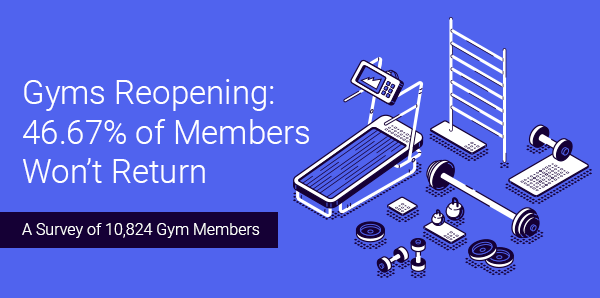During this pandemic, a survey was conducted to understand how gym members are feeling about the reopening.
Key findings:
- American’s are the least likely to return to their gyms upon reopening (50.16%).
Nearly half of all gym members globally will not return to their gyms upon reopening (46.67%). - More than a third of all gym members globally have already canceled or are considering canceling their memberships (36.57%).
- Women are less likely to return to the gym when reopened (52.25%) in comparison to men (45.75%).
- The UK has the highest amount of gym memberships already canceled (18.92%).
- Australia had the highest amount of members who either already canceled or were considering canceling their memberships (41.15%).
Impact of COVID-19 on gyms reopening and gym memberships
“5,052 of the 10,824 respondents with gym memberships globally said they would not return to their gym when it reopens (46.67%) and 5,772 said they would return (53.33%).”
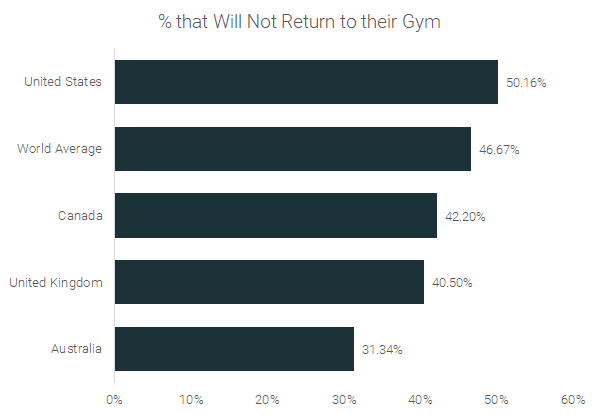
State differences in responses of gym members
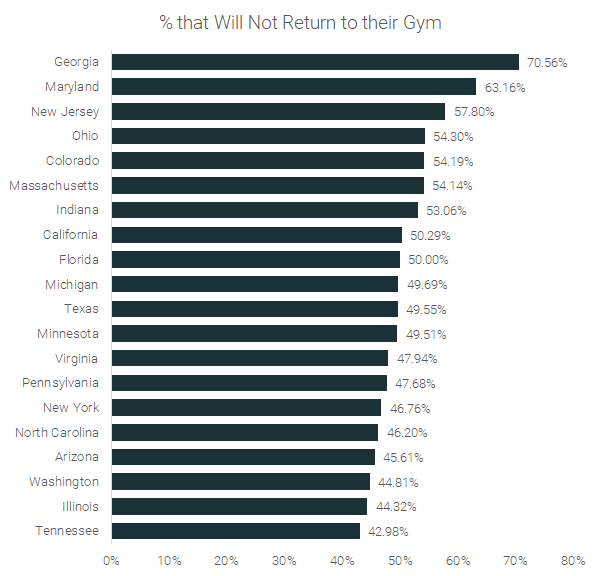
Gender differences in responses of gym members
“Women were less likely to return to their gyms (52.25%) when reopened than men (45.75%).”
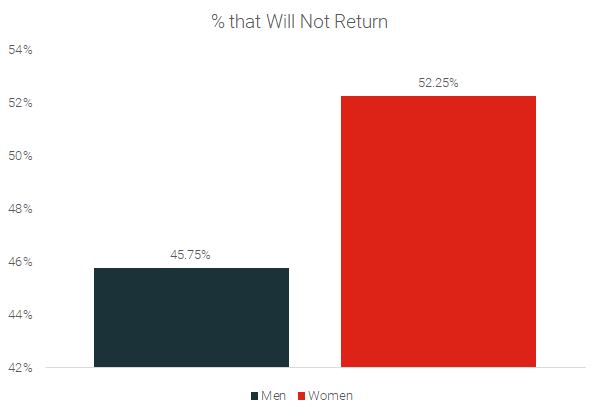
“Although women were less likely to return to the gym, men are more likely to cancel or consider canceling their memberships (37.27%) in comparison to women (32.26%).”
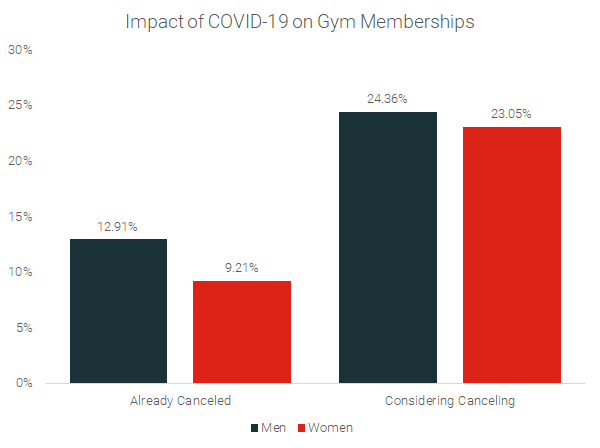
–
This study highlighted the fact that COVID-19 has taken a toll on the fitness industry. As the gym reopens, gyms are not going to be back to business as usual. Not to mention the bankruptcies and shutdowns of small gyms.
It’s interesting to see how the perception of people differs from country to country, state to state, and even male to female. But across the statistics, the large number of people who are canceling memberships suggests that there’s a huge opportunity for gym alternatives on the market. The study directs us to the question of how do people stay active when gyms are closed?

